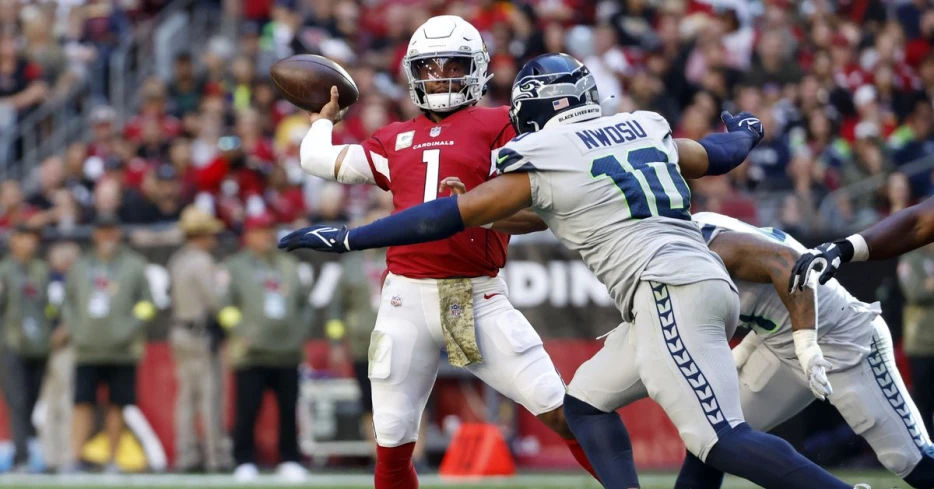
 Field Gulls
Field Gulls
And why simply cutting Nwosu ahead of his guarantees vesting wasn’t really on the table for the Seahawks.
There has been no shortage of ink spilled on the current salary cap situation of the Seattle Seahawks, with the deadline to come into cap compliance now looming over the horizon just over three weeks away. Fans, observers and analysts have proposed multiple ways for the Hawks to not just gain cap compliance, but to free up significant amounts of space in order to rebuild the roster.
One of the moves that had been very quickly proposed by many fans is the release of outside linebacker Uchenna Nwosu ahead of the date on which $6M of his $14.48M 2025 base salary would vest from guaranteed for injury only to fully guaranteed. That deadline, of course, was set to arrive Friday, but according to a report from Brady Henderson of ESPN, the team and Nwosu agreed to push back the vesting date.
That brings the question around to why the ‘Hawks would agree to that. Nwosu is set to earn as much as $26.5M over the next two seasons from the Hawks, in spite of consecutive injury plagued campaigns in both 2023 and 2024 since signing his current contract. It’s extremely unlikely any team would be willing to splurge in such a manner that Nwosu could make more after being released, which leads to the question, then, of why Seattle didn’t simply release Nwosu.
And, that is where things get murky and where an understanding of the contractual structure used by the Seattle front office becomes necessary.
In short, the answer to that is that the Seahawks couldn’t simply release Nwosu because it would jeopardize future contract negotiations by blowing apart the structural precedent the Hawks have long used on second contract.
At issue with Nwosu’s contract is, of course, the $6M of injury guarantees that are set to vest into fully guaranteed money, and the difference between guaranteed for injury only and fully guaranteed is the razor upon which the Seahawks structure their contracts in order to avoid the escrow requirements of the Funding Rule.
The Funding Rule is an old rule set by NFL Owners to prevent other owners from bankrupting a team and requiring a bailout from other owners, and an exception of the first $15M of fully guaranteed future salary is laid out in Article 26, Section 9 of the Collective Bargaining Agreement (Author’s Note: Bolding added to relevant portions for emphasis).
Section 9. Funding of Deferred and Guaranteed Contracts: The NFL may require that by a prescribed date certain, each Club must deposit into a segregated account the present value, calculated using the Discount Rate, less $15,000,000 (the “Deductible”), of deferred and guaranteed compensation owed by that Club with respect to Club funding of Player Contracts involving deferred or guaranteed compensation; provided, however, that with respect to guaranteed contracts, the amount of unpaid compensation for past...